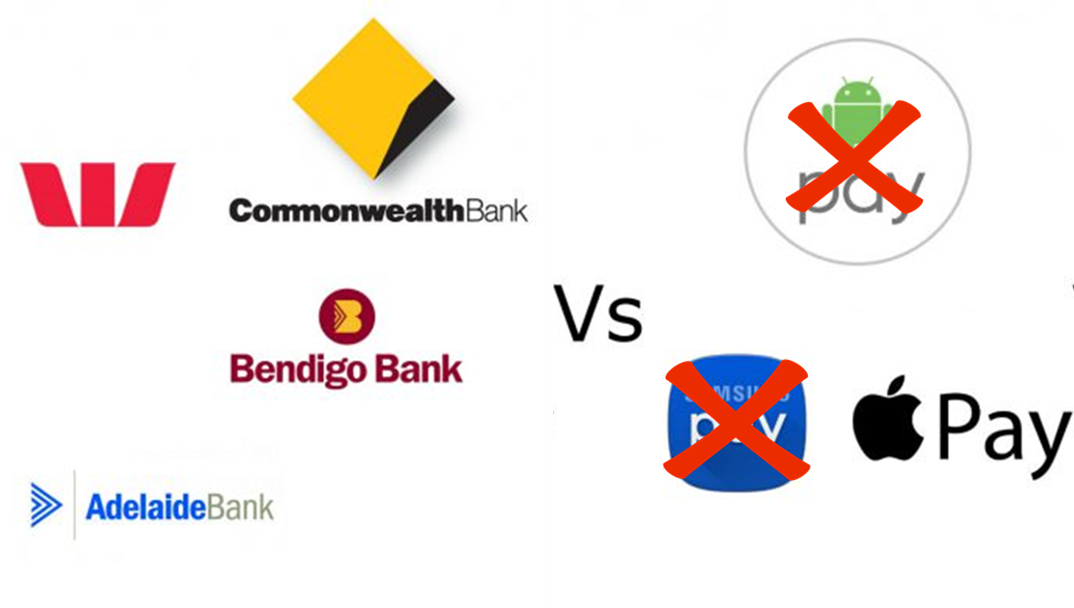
We originally reported on how some of Australia’s largest banking institutions, including CBA, Westpac, and Bendigo Bank, had sought permission from the Australian Competition & Consumer Commission (ACCC) to enter into a collective negotiation and boycott of “all mobile payment/wallet services”. Subsequent to that the ACCC provided a temporary judgment refusing the application pending further submissions.
Since then many submissions have been received including one from Google Australia. It seems that following these submissions and testimonies from many interested parties, the collective of banks have refined their position. As of their latest filing on the 7th of October, the group is now solely seeking permission to enter into collective negotiations and boycott against Apple and Apple Pay, “applicants propose to collectively negotiate with Apple in respect of Apple Pay”, and “applicants do not intend to collectively negotiate with any other third party wallet provider”
From an Android perspective, we could leave this here and say, see Android is open it’s all good. However, two items of interest remain, firstly, now that the consortium of banks has narrowed their dispute to just Apple will they ipso facto now commence negotiations to support Android Pay and Samsung Pay? Secondly what about the larger question of the application to negotiate with Apple?
Android is open; will the banks embrace it for mobile payments now?
On the first matter, yes Android is open, and yes there are both APIs Australia banks can use to build mobile payment apps for Android and there are a number of such apps in Australia. So if this major component of the bank’s concerns does not exist on Android then, if their intentions are as they state, we should see these institutions start to work with Google Australia to implement the consumer option for Android pay into their product offerings any day now.
Failing to do this may well serve as evidence for Apple that the bank’s motives are not so pure as to foster consumer choice and innovation in the Australian mobile payments space, and could, in fact, have more to do with their own desires for platform domination. We sincerely hope these institutions sit to the table with Google and/ or Samsung to look at offering their customers those choices.
Should the banks collectively negotiate with Apple?
As for the larger debate around whether the commission should grant the banks the permission to collectively bargain with Apple, that is indeed a larger and trickier issue, and one which I am not qualified to answer. However, Apple has shown it’s relentless ability to use it’s sheer platform size and customer numbers as a heavy negotiation tool. Many still say that the music industry has never recovered from the Apple-ification of music purchasing.
It’s genuinely hard to consider siding with either the record industry (not recording artists the industry) or the banking sector, however, Apple may well be one of the most dominant business forces in the world, and certainly seem to be using their user base and dominance to pivot into other ‘profit centres’. Technically Apple does not have a monopoly, we often quote that Android is 80% of the smartphone market, however, it could be argued that Apple has the monopoly on smartphone profits.
Sure the Android platform dominates the percentages but the iOS ecosystem collects a dispositionally large amount of the actual revenue and overall profits in the smart things world. It’s hard to reach a final conclusion in this debate, and lucky we have the ACCC commissioners and their advisors to weigh up these arguments and the legality of the request.
Rather than a conclusion, I pose these questions to you; do you want Apple to dictate the terms in which they enter the Australian financial market? Do you think Apple has the best interests of the Australian people or our financial sector at heart? Who will better protect your rights in the end?
Feel free to weigh in below, this is a complex issue with complex legal and social issues surrounding it.




